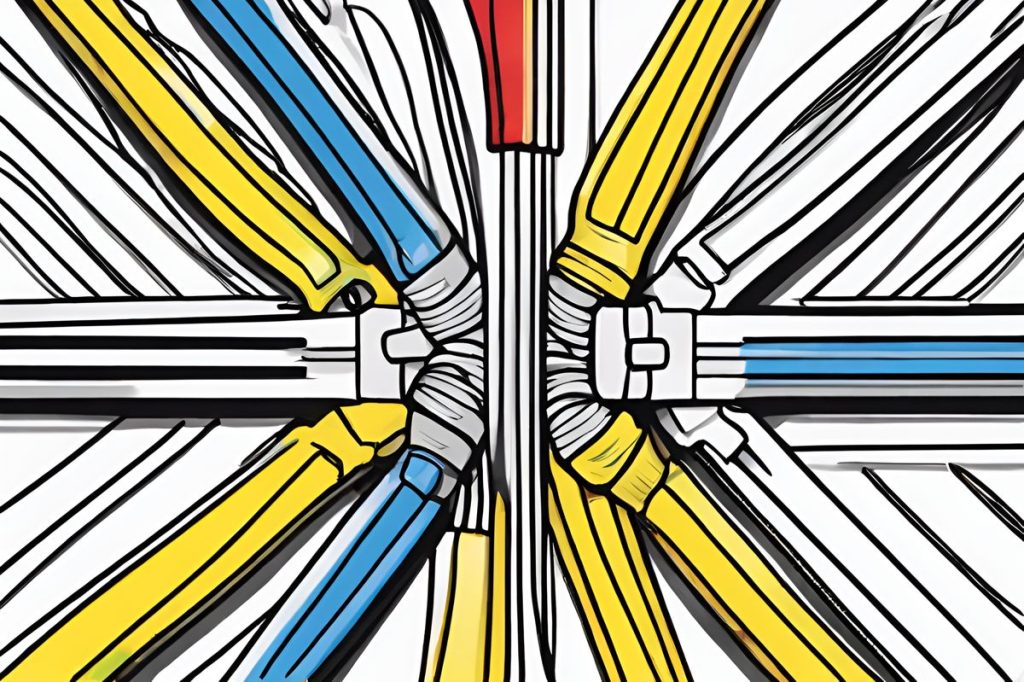The concerns over fire hazards from exposed electrical infrastructure, especially in forested areas, are escalating due to recent fires and illegal rubbish dumps. Urgent upgrades to the electrical network and improved waste management strategies are needed to prevent future disasters and protect the environment.
What are the concerns over fire hazards from exposed electrical infrastructure?
Exposed and worn-out electricity cables, particularly in forested areas, pose significant fire hazards. Criticism has escalated due to recent fires and the presence of illegal rubbish dumps, highlighting the need for urgent electrical network upgrades and improved waste management strategies to prevent future disasters and protect the environment.
A Call to Action for Electrical Safety
The safety hazards posed by naked and worn-out electricity cables have drawn significant criticism, especially as these cables traverse through forested areas, heightening the risk of fires. This threat is further amplified by the presence of illegal rubbish dumps, a long-standing issue that environmental advocates have been voicing for years. Green Party MP Charalambos Theopemptou recently highlighted these concerns, emphasizing the predictability of the risks involved.
Recent incidents have put the spotlight on the consequences of neglected electrical maintenance. A series of fires, including those that affected the village of Psathi in Paphos and the communities of Farmakas and Fikardou in Nicosia, have underscored the urgency for action. These fires have not only caused damage to the environment but have also raised questions about the preparedness and response of the authorities.
The Blame Game and the Need for Solutions
As the authorities strive to present themselves as having been proactive, the public’s critique is manifesting in more vocal demands for accountability and tangible improvements. The rhetoric of praising volunteer and firefighter bravery, while undoubtedly deserved, does not address the systemic issues at play. Personal responsibility, while important, cannot be the sole remedy to an infrastructure problem that requires a comprehensive and proactive overhaul.
The Farmakas blaze, which was one of the 32 fires within a 24-hour period during a heatwave, was initially attributed to a malfunction at an electricity transformer. However, this was quickly disputed by the Electricity Authority of Cyprus (EAC), leading to a familiar round of accusations similar to those witnessed after the Elitzies fire. Despite the EAC’s assurances of an ongoing project to insulate wires in high-risk areas, critics like MP Theopemptou highlight the intrinsic vulnerability of the electric grid’s design, which necessitates long-distance power lines over forest and rural lands.
Infrastructure Upgrades and Waste Management Strategies
Addressing the issue head-on, Theopemptou points to the need for an urgent network upgrade. A forestry department study from 2012 identified degraded cables among the top causes of fires, yet upgrades have been sparse. With expanding zones of provision, financial responsibility for these upgrades becomes contentious, especially with the added strain from photovoltaic (PV) parks due to poor planning.
On the topic of illegal rubbish dumps, greater supervision and systematic cleanup are vital, according to Theopemptou. Instead of relying on “green points,” which often become unofficial waste sites, the MP suggests more integrated solutions. These include designated premises within residential neighborhoods for depositing items like batteries or small appliances and setting up a specific day for collection or repair to facilitate recycling or donation.
Furthermore, the establishment of local cooperatives could serve multiple purposes—providing community jobs, efficiently dismantling or repairing items, and sorting valuable antiques for reuse. This would negate the need for complicated tender processes and could lead to more sustainable waste management practices.
A Proactive Approach to Environmental Protection
The debate continues between the appropriate authorities and concerned citizens regarding the best course of action to prevent future disasters. While EAC spokeswoman Christina Papadopoulou has stated that an independent team is conducting a “final investigation,” the urgency for immediate measures is palpable among the public.
It is apparent that a proactive, rather than reactive, approach to managing electrical infrastructure and waste is essential. By prioritizing upgrades, insulation of cables, and innovative waste management solutions, the risks of devastating fires can be mitigated, protecting both the environment and the communities that depend on it.
What are the concerns over fire hazards from exposed electrical infrastructure?
Exposed and worn-out electricity cables, particularly in forested areas, pose significant fire hazards. Criticism has escalated due to recent fires and the presence of illegal rubbish dumps, highlighting the need for urgent electrical network upgrades and improved waste management strategies to prevent future disasters and protect the environment.
What is the call to action for electrical safety?
The safety hazards posed by naked and worn-out electricity cables have drawn significant criticism, especially as these cables traverse through forested areas, heightening the risk of fires. Recent incidents have put the spotlight on the consequences of neglected electrical maintenance, emphasizing the urgent need for action to prevent further disasters.
What infrastructure upgrades and waste management strategies are being proposed?
Green Party MP Charalambos Theopemptou has emphasized the need for urgent network upgrades to address degraded cables as a top cause of fires. Additionally, improved waste management strategies such as greater supervision of illegal rubbish dumps and the establishment of local cooperatives for recycling and repair are being suggested to mitigate risks.
What is the importance of a proactive approach to environmental protection in this context?
A proactive approach to managing electrical infrastructure and waste is crucial in preventing future disasters. By prioritizing upgrades, insulation of cables, and innovative waste management solutions, the risks of devastating fires can be reduced, ultimately protecting both the environment and the communities that depend on it.

